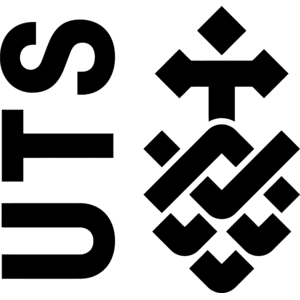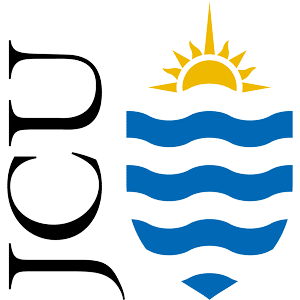Gain in-demand skills for analysing data with a specialised Master of Business Administration.

Course Overview
The MBA in Business Analytics offers a combination of leadership training and business analysis expertise. Open to professionals from different backgrounds, this program serves as a bridge between data assets and strategic decisions.
Data-driven decisions are crucial in contemporary business. A survey by S&P Global Market Intelligence revealed that already over 25% of organisations base almost all their strategic decisions on data. An MBA (Business Analytics) prepares you to excel in this increasingly data-oriented environment.
The program integrates a management education with analytical subjects. It comprises eight core subjects and four specialist electives, including customer analytics, visual analytics, predictive modelling, and delivering organisational value. Conveniently designed for online study, you can complete this degree in 2 years while maintaining a full-time job.
What Does an MBA in Business Analytics Do?

The MBA with a Business Analytics specialisation develops your ability to harness big data for smart decision-making. The degree opens pathways to analytics and manager careers like business intelligence analyst, analytics consultant, or management consultant, while also improving your general managerial skills.
The course provides a toolkit for navigating the data-centric business world of today. It sharpens your ability to analyse data, consult strategically, manage projects, and dissect operations. The program strongly highlights the practical use of data insights for choice formulation and enhancing company performance, offering graduates a competitive advantage in the job market.
While a basic understanding of statistics and some programming experience are necessary, this MBA isn't as technically demanding as data science or specialised business analytics courses. The focus is more on the practical use of data in making decisions rather than complex coding or advanced mathematics. In essence, the primary objective is to use data effectively in a business setting.
UTS Online - MBA (Business Analytics)
The UTS Online MBA builds strategic leadership skills while developing analytical abilities to support evidence-based decisions. The Business Analytics specialisation is open to professionals with and without an analytical background. Benefit from a program that balances a management education with a well-rounded set of analytical subjects. The accelerated course consists of 8 core subjects and 4 electives from your chosen specialist field. Topics include customer analytics, visual analytics, predictive modelling, and delivering organisational value. You can study for the degree part-time while working full-time.
JCU Online - MBA Global (Data-Driven Decision Making)
Gain valuable data analytic skills with the MBA Global from James Cook University. Featuring a Data-Driven Decision Making specialisation, students explore topics such as data analysis and decision modelling, information management and analytics technology, and data information: management, security, privacy and ethics. You learn of the opportunities and strategies to harness data to inform management decisions. This flexible and affordable tech management degree can be completed 100% online while you continue working.
Is This Degree Worth It?

A Business Analytics MBA is a worthwhile investment for many. It boosts your ability to make data-based decisions, giving you a competitive edge. This degree paves the way for high-paying roles in management and analysis where impactful analytical skills are in demand.
The course bolsters your overall managerial skills and deepens your understanding of metrics-based strategy. This blend of abilities enhances your value in top-tier managerial positions. It's an outstanding choice for those looking to integrate business strategy with data analytics in their careers.
The flexibility of fully online study increases the overall value of the degree. It trims costs and accommodates your lifestyle. With or without the specialisation, an online MBA delivers significant advantages. Essentially, you can secure a globally recognised management qualification without needing to travel or interrupt your career, especially if you opt for part-time studies.
But, if your primary goal is to become a dedicated business analyst, a Master of Business Analytics may be more suitable. This specialised master's degree offers a technically-focused curriculum centred on in-depth data analytics and their practical applications.
Related: Is a Masters in Business Analytics Worth It? | 6 Masters in Business Analytics Online
MBA vs Business Analytics MBA
An MBA with a Business Analytics specialisation fundamentally remains a Master of Business Administration. It explores the same core areas as a "general MBA".
For example, the UTS Online program consists of 12 subjects, with 8 of them being core subjects. For every student, regardless of their chosen specialisation, two-thirds of the degree remains the same.
However, if analytics is your area of interest, the specialist program could prove to be a better choice. It extends beyond core business knowledge in fields like accounting, finance, leadership, management, and marketing. Uniquely, the program provides complementary training in business metrics.
Example: UTS Online
The MBA from UTS Online has 8 core subjects* and 4 electives. The Business Analytics specialisation effectively contains five analytic-focused subjects because 'Data-Driven Decision-Making' is one of the core subjects.
In today's information-heavy world, leaders must know how to make smart choices. This course gives students a hands-on look at data analysis. You'll learn how to sift through data, build models to predict trends, and show information in easy-to-understand visuals. The goal? To turn raw data into useful insights for your company. Plus, you'll get good at sharing these insights to help make better decisions.
The volumes of data companies are obtaining about customers are increasing exponentially due to emerging technologies and a digital environment of increasing sophistication. In this subject, you explore how to use analytical tools or methods on different data sources to extract powerful insights. The end goal is to improve strategy and decision making as part of a campaign of raising customer value.
In this course, we'll delve into data visualisation technologies that aid visual analytics and choice formulation processes. You'll have the chance to study recent scholarly articles in the field and gain practical experience with visual analysis software. The curriculum imparts an understanding of analytical procedures and techniques. Upon completion, you'll be adept at designing and evaluating sophisticated interfaces for use in visual analysis or data mining. The knowledge and skills obtained could lay a strong foundation for roles like graphical data interface designer or visual data analyst.
Students examine the regulation of and ethics involved with data practices in digital environments. You'll achieve a deeper appreciation of moral and ethical principles behind privacy, security and accountability practices. We apply this knowledge to topics such as regulating data collection, algorithmic accountability, and biases associated with data analysis tools.
The Foundation Studio is an opportunity to put the skills you learned in core subjects into practice. The studio applies real-world analytic settings, where students are tasked with identifying business problems and solutions. You're introduced to the theory of markets and learn how to make predictions using data.
* Core subjects are: Accounting for Decision Makers, Data-Driven Decision-Making, Financial Fundamentals, Governance and Sustainability, Leading People and Change, Managerial Economics, Marketing in the Age of Technology, Strategy and Negotiation.
Example: James Cook University
The Global MBA from JCU Online incorporates Business Analytics as one of its key themes. The 12-core subject program* includes three analytical subjects.
In this course, students gain the skills to handle and dissect datasets to extract meaningful information from routinely collected data. At a fundamental level, you'll construct systems for data analytics, comprehend business statistics, and formulate useful decision models.
In this fast-moving subject, we'll explore concepts and methods for managing databases while ensuring data security, privacy and ethics. Elements include: data sources and measurement; data warehousing and distributed management systems, and data querying.
Effectively managing and controlling contemporary organisations relies on information, analytics and technology. In this subject, we develop a framework for using data to inform management and leadership practices. Students learn how to leverage digital technologies as a business analyst.
* Other core subjects are: Business Consulting | Business Innovation and Technology Management | Corporate Finance | Corporate Strategy | Integrated Global Capstone Project | Management and Leadership Skills | Marketing Strategy, Analytics and Development | Multinational Corporations and International Markets | Venture Capital and Entrepreneurship.
Is Business Analytics Hard in an MBA?
Studying Business Analytics as part of an online MBA might seem challenging, but it's not necessarily more difficult than other subjects. The aim of the program is to enhance your management skills, and analytics naturally fits into this framework.
Business analysis isn't as tech-heavy as some might think. It's less about deep programming or complex stats, and more about basic statistics, making sense of data, and clear communication. On the analytical side, the program prepares students to:
- Manage data responsibly, abiding by regulations and ethics.
- Apply business analysis theories and techniques.
- Use visual analytics to present data clearly.
- Solve choice problems in diverse settings.
- Interpret analytics to define company strategies.
- Design practical solutions for commercial issues.
MBA programs are manageable since they are more about practical application than mastering technicalities. You're not expected to be a data expert. The focus is using data insights for decision making and operational improvement. Success hinges on being organised, motivated, and people-smart. So with the right attitude, you can handle the challenging aspects.
Related: Business Analytics vs Data Science
What Should I Do After Getting This Degree?

After completing an MBA with a Business Analytics concentration, you will have a wide array of career paths to choose from. The right job for you will depend on your prior analytical and management experience.
If analytics is your preferred speciality, you might consider senior analyst roles. These include positions such as Business Analyst, Business Intelligence Analyst, Chief Data Officer, Data and Insights Expert, Digital Marketing Analyst, or Head of Business Intelligence.
However, if broader management roles appeal to you more, this degree also readies you for such positions. You might think about executive management roles like Business Development Manager, Business Strategy Consultant, Chief Executive Officer (CEO), Chief Marketing Officer (CMO), or Global Supply Chain Manager.
As a graduate, you could reasonably expect a salary upwards of $106k in Australia. Analyst earnings statistics suggest that business analysts earn an average salary of $105,899 per year, based on 1.6k reported salaries. Business intelligence analysts make approximately $109,829 annually, while analytics managers earn an average yearly salary of $129,406.


